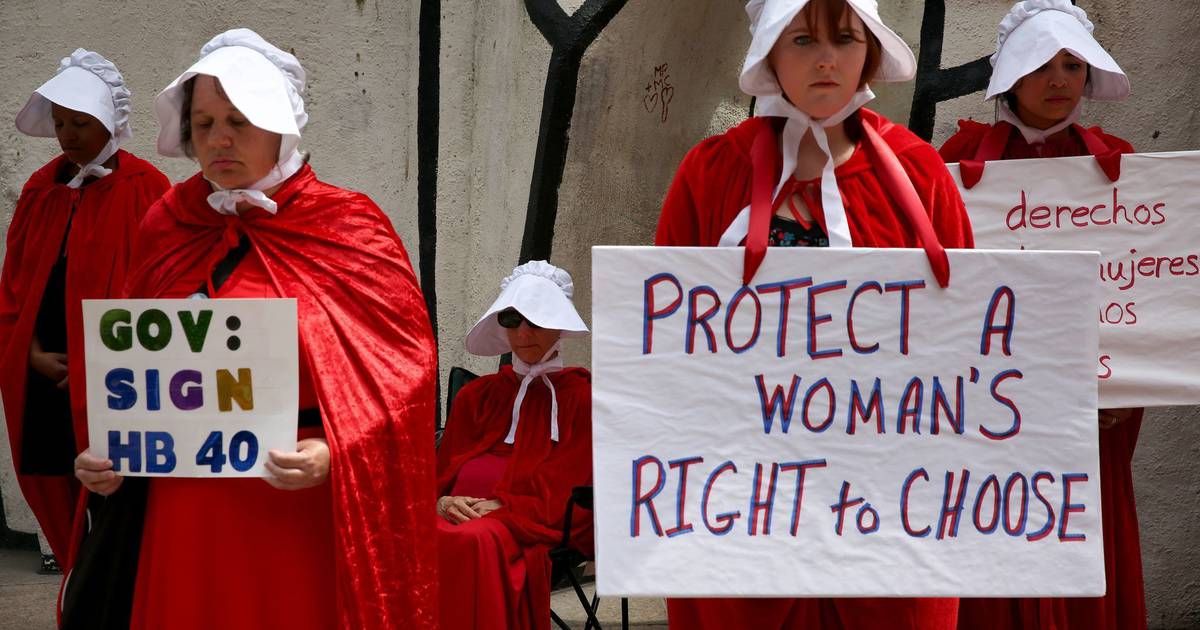Though abortion laws have been on the books in Illinois since the 1800s — and will continue to allow access to reproductive freedoms despite a Supreme Court ruling that overturned the Roe v. Wade decision — funding for abortions in the state has fluctuated through the years.
Here’s a look at the decades-long political roller coaster over government coverage of abortions in Illinois.
[ Vintage Chicago Tribune: History of abortion access in Illinois ]
JULY 30, 1965
This provides health insurance for low-income patients funded by the federal and state governments. Each state administers its Medicaid program differently within parameters established by the federal government.
JAN. 22, 1973
The landmark U.S. Supreme Court case Roe v. Wade in a 7-2 ruling affirms the legality of abortion under the 14th Amendment of the U.S. Constitution. The New York-based Center for Reproductive Rights estimates that Medicaid pays for some 300,000 abortions annually nationwide.
:quality(70)/cloudfront-us-east-1.images.arcpublishing.com/tronc/C6MAI45FVNFFLJ35OCWZY4HD7Q.jpg)
1975
If Roe v. Wade is ever overturned, then abortion could become illegal again in the state. Similar statutes are on the books in Kentucky, Louisiana and South Dakota.
:quality(70)/cloudfront-us-east-1.images.arcpublishing.com/tronc/DLT3FXPV5VAR7CEFY4VY6HNAVM.jpg)
SEPT. 30, 1976
Sponsored by Illinois Representative Henry Hyde, this amendment to the Health, Education and Welfare Appropriations Act bars federal funding of abortion except when necessary to save a woman’s life. The amendment has been renewed by Congress in some form every year since.
:quality(70)/cloudfront-us-east-1.images.arcpublishing.com/tronc/RMQ77YBNFBA3ZJR7UPLANL564Q.jpg)
1977
After the U.S. Supreme Court rules states and cities are not required to provide abortions that are not critical to a mother’s life, Congress expands exemptions to include cases of rape, incest or to protect the physical health of the woman.
JUNE 30, 1980
The U.S. Supreme Court’s 5-4 decision says federal and state governments have no obligation to provide funds for abortions under the U.S. Constitution.
:quality(70)/cloudfront-us-east-1.images.arcpublishing.com/tronc/NPP6Z7FEJVBCZDNLGC44SNNYW4.jpg)
OCTOBER 1980
Citing the high cost, a shortage of nurses and laws barring public aid to terminate pregnancies, Cook County Board President George Dunne says the procedure will only be performed to save the life of the woman.
:quality(70)/cloudfront-us-east-1.images.arcpublishing.com/tronc/3HQPFGVRZVAEDPVL5YS5LJQTVI.jpg)
MAY 21, 1981
Incest and rape exceptions are dropped from the Hyde Amendment.
SEPT. 16, 1992
Six women receive abortions that day at the hospital. Protests ensue.
:quality(70)/cloudfront-us-east-1.images.arcpublishing.com/tronc/HGJZ4OVCJNBATKNOSVDUHFOPU4.jpg)
SEPT. 28, 1993
The Senate voted 59-40 to permit government funding of abortions for poor women only in cases on rape, incest or if the women’s life is in danger. The abortion funding ban adopted by the Senate was also approved by the House earlier the same year.
NOV. 8, 2016
While campaigning, he commented that Roe v. Wade could be overturned “automatically, in my opinion, because I am putting pro-life justices on the court.”
JAN. 11, 2017
With a goal to eliminate the “trigger provision” in state law, the measure — introduced by Rep. Sara Feigenholtz, D-Chicago — would also allow Medicaid and state employee health insurance coverage to fund abortion.
:quality(70)/cloudfront-us-east-1.images.arcpublishing.com/tronc/CJGMAVWJR5GSXKSLYGZBPUAMMQ.jpg)
APRIL 14, 2017
He pledges to veto the Democratic-backed measure due to the “sharp divisions of opinion of taxpayer funding of abortion.”
:quality(70)/cloudfront-us-east-1.images.arcpublishing.com/tronc/2MO2SGBH4REEFLCQIDNMOFYVK4.jpg)
SEPT. 28, 2017
The measure provides state health insurance and Medicaid coverage for abortions and also says the state supports abortion rights even if Roe v. Wade is overturned.
:quality(70)/cloudfront-us-east-1.images.arcpublishing.com/tronc/C3ZUE6T52FEKHMHCNO2Z4OX7I4.jpg)
NOV. 30, 2017
Illinois anti-abortion organizations, along with some Republican lawmakers, file a lawsuit in Sangamon County to try and temporarily block HB40, estimating the state will be required to pay for tens of thousands of abortions annually.
:quality(70)/cloudfront-us-east-1.images.arcpublishing.com/tronc/EPYQ3X5ST5HCVPAALPEFECKNTQ.jpg)
DEC. 28, 2017
The suit sought to block state funding for the law, arguing the state failed to set aside up to $30 million in the budget to pay for abortions.
The Thomas More Society files a notice of appeal.
JAN. 1, 2018
Patients can now use Medicaid or state health insurance to pay to terminate pregnancies for any reason.
MARCH 21, 2018
In the Republican primary, Rauner narrowly defeats opponent Jeanne Ives, who frequently rebuked the expansion of abortion rights while campaigning.
:quality(70)/cloudfront-us-east-1.images.arcpublishing.com/tronc/62IIQJWINZHTFK7YYGYJ72XGZU.jpg)
JUNE 4, 2018
It includes the funding of abortions covered by Medicaid and state health insurance despite opposition expressed by some Republican lawmakers.
NOV. 6, 2018
Soon after, Pritzker pledges to make Illinois the most progressive state in the nation when it comes to reproductive rights.
:quality(70)/cloudfront-us-east-1.images.arcpublishing.com/tronc/6EKAVL6AWFCSJM2GA4QPZXV5H4.jpg)
JUNE 12, 2019
The sweeping reproductive rights legislation establishes the “fundamental right” to an abortion in Illinois.
:quality(70)/cloudfront-us-east-1.images.arcpublishing.com/tronc/3ARATNMX7FHBXNUO32SO6N6NIY.jpg)
MAY 28, 2021
The president unveils a $6 trillion budget for 2022 that excludes the controversial Hyde Amendment, which bars federal funding to cover most abortions and was spearheaded by Illinois Representative Henry Hyde in 1976.
JUNE 24, 2022
Yet Illinois remains an oasis for those seeking the procedure, as abortion providers in many surrounding states prepare to shut down. Gov. J.B. Pritzker in 2019 signed the Reproductive Health Act, ensconcing the “fundamental right” to terminate a pregnancy in state law.
Check out the Tribune’s archives at your fingertips at Newspapers.com.
Sources: Medicaid.gov, Thomas More Society, Center for Reproductive Rights, The Guttmacher Institute
